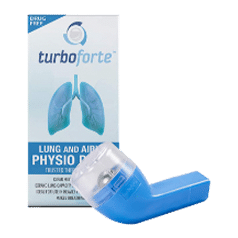What is Cystic Fibrosis?
Cystic Fibrosis, also known as ‘CF’, is a progressive genetic disease that affects the lungs and digestive systems. The condition is known to damage the cells that help in the secretion of sweat, mucus, and digestive enzymes. These secreted juices are usually slippery and thin but for those with cystic fibrosis, these particular secretions’ turn thick and sticky.
This thick sticky mucus can block the airways into and out of the lungs, block the channels that carry digestive enzymes to the stomach and increase the amount of salt sweated resulting in life-threatening problems, including respiratory failure and malnutrition.
What are the causes of Cystic Fibrosis?
An inherited disorder, cystic fibrosis is caused by having two copies of the CF gene. It is not contagious. At least a single copy of the CF gene from each parent must be inherited for a child to contract cystic fibrosis.
In a situation where a child inherits one of the genes, they are not likely to have cystic fibrosis; however, there is a chance that they are a carrier and pass the gene to their children.
How is Cystic Fibrosis Diagnosed?
The diagnosis of cystic fibrosis involves several numbers of tests. A heel prick test for cystic fibrosis is now routinely conducted on all newborns. The heel prick test is not conclusive, and a positive result will require further tests. A sweat test is conducted if a baby is suspected of cystic fibrosis.
Further tests may then be required such as blood tests, chest X-rays, lung function tests, sputum & stool tests. Undergoing genetic blood testing before giving birth is recommended if you, a relative or partner, have cystic fibrosis The testing will help determine the risk of giving birth to a child with cystic fibrosis.
What are the signs of Cystic Fibrosis?
Symptoms and signs of cystic fibrosis vary greatly depending on how severe the disease is. The most common include:
- Wheezing and shortness of breath
- Persistent coughing at times with thick mucus
- Frequent Lung Infections
- Difficulty putting on weight
- Greasy, foul-smelling stools
- Salty tasting skin
- Possible infertility in males
What is the Treatment for Cystic Fibrosis?
Cystic fibrosis has no known cures, and treatment can be intensive and time-consuming. Regular check-ups with constant monitoring are required to control symptoms, prevent complications and slow the progression of CF.
CF may feel a little bit different for everyone, so an individualized treatment plan by a health care professional, updated regularly, and attendance at a cystic fibrosis clinic is beneficial and recommended. The main treatments involve:
Airway Clearance Techniques
These include breathing techniques, manual chest physiotherapy, postural drainage exercises, and the use of a handheld PEP (positive expiratory pressure) airway clearance device. The physiotherapist will play a vital role in teaching you the various airway clearance techniques that work best to keep the lungs and airways clear.
Regular use of a PEP device like the Turboforte™ may help to remove mucus from the airways. Read our post on airway clearance techniques for further information.
Medications
Doctors may recommend a number of different such as Bronchodilators to relax muscles and open airways, Steroid medicine to ease swelling and irritation, medications to help thin & clear mucus from the airways, antibiotics to treat infection, and enzymes to help absorb fat and nutrients.
Exercise
Exercise is essential to anyone with CF as it may help clear mucus from the lungs and improve physical strength. The physiotherapist is best to advise the right type & intensity of exercises.
Dietary & Nutritional Advice
Eating well is critical for people with cystic fibrosis due to the body’s issue in maintaining a healthy weight & absorbing food & nutrients. Specific dietary nutritional requirements should be determined with a healthcare professional, as requirements vary depending on your age, weight, height, activity levels and CF symptoms.
Good nutrition and healthy body weight has been known to be linked to better lung function and fewer infections.
Disclaimer:
This information is designed to support, not replace, the relationship between patient and health care professional. It is not intended to and cannot provide you with health or medical advice. Always speak with your health care professional about your medical issues and concerns. No claims are made or implied in the use of or result from using the Turboforte™.




